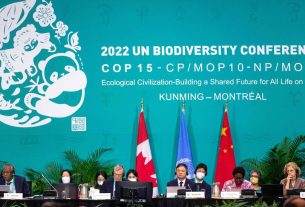-
The UK government is providing £1 million of humanitarian assistance in response to the devastating impact of Typhoon Yagi in Vietnam. It will provide emergency supplies, cash assistance and critical services, such as health, water and sanitation to those affected.
-
Typhoon Yagi is the most powerful storm to hit the South China Sea in 30 years and has caused widespread damage and loss of life in multiple provinces.
-
This vital humanitarian assistance will support the initial phase of the response, including life-saving interventions and early recovery via humanitarian partners.
The UK government has today announced £1 million of humanitarian assistance to Vietnam to support the initial phase of the response to the impact of Typhoon Yagi. The vital assistance will be allocated to humanitarian partners and will reach individuals directly through providing emergency supplies, cash assistance and critical services, such as health, water and sanitation.
Typhoon Yagi hit Vietnam with sustained winds of 142 mph and heavy rainfall. [As of 14 September] 351 people are reported to be dead or missing, and over 800 people have reported injuries following landslides, falling trees, and widespread flooding. Furthermore, over 188,000 houses are damaged, destroyed or flooded and there has been significant damage to power infrastructure, bridges, and educational facilities.
Vietnam is one of the world’s most climate vulnerable states. The UK is at the forefront of climate cooperation with Vietnam as co-leaders of the Just Energy Transition Partnership. In addition to supporting the initial phase of the typhoon response, this funding will help to boost Vietnam’s ongoing resilience to climate change.
Minister for Development, Anneliese Dodds said:
The UK government stands beside the people affected by the devastating impact of Typhoon Yagi in Vietnam.
We have coordinated closely with the Vietnamese government and humanitarian partners to identify where our support can have greatest impact.
The funding announced today will reach those most in need, providing emergency supplies, cash assistance and critical services, such as health, water and sanitation to those in the worst affected areas.



